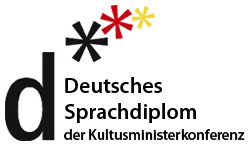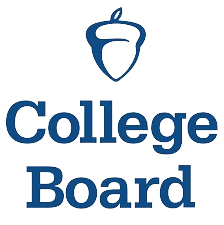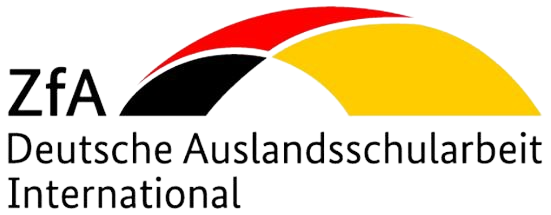Class Offerings
Students are grouped based on age and abilities
Musik-Class
Activities bridge the natural connection between language, music and movement and enhances a child’s language and musical aptitude and listening abilities. Get ready to bounce, rock, wiggle, and play peek-a-boo
- “Mommy & Me” Music
- Infant to Pre-K (18 months to 3 1/2 years)
- 45-minute playful introduction to the German Language
- Establish beginning German language sounds and words
German FUNdamentals & more
Small Classes for FOREIGN Language Learners & NATIVE Speakers. Two-track program that separates classes for beginners and students with prior knowledge of German
- Track 1: For foreign language learners abides mainly by the new Common European Framework of References (CEFR) and the US National Standards for Foreign Languages (ACTFL)
- Track 2: For children with native knowledge of German follows the standards set by the German school curriculum and the CEFR, to further the goal of easy integration into the German School System for returning students and/or to obtain the German Language Certificate (Deutsches Sprachdiplom), which is proof of language proficiency for German, Austrian & Swiss universities
Adult Language Classes
Students enjoy learning the language through conversations about topics, the use of a textbook with an audio CD, videos, short stories, games about idiomatic expressions, proverbs, cultural topics and the explanation of relevant
- Beginners to Advanced
- Adults learn German because they have a great interest in Germany, the German culture, are working in a German company, or have a German-speaking spouse, or have children enrolled in our school
- Adult classes are subject to a minimum enrollment
Additional class offerings
Additional classes are available for students who want to further their language skills
- Deutsches Sprachdiplom Vorbereitung
- SAT Subject II & AP Prep Classes
- Exchange & Study Abroad Preparation
- Private Tutoring
- Corporate Language Instruction
Curriculum
Preschool to High School
Preschool (3 to 5 years old)
Track 1: German as a Foreign Language
- Children experience spoken German through songs and games while learning to follow simple directions.
- Family, Clothes, Colors, Letters, and Numbers to 10 are basic concepts introduced through play, songs and theme-related crafts.
- We focus on learning simple communication skills to develop a sense for a different language and different pronunciation.
- We also introduce such German holidays as Sankt Martin, Sankt Nicolas, and Karneval.
Track 2: Native/Heritage Speaker
- Children experience spoken German through songs and games to expand their vocabulary with topics: My Family, Feelings, Through the Year, German traditions and holidays, etc.
- Concepts are introduced through play, songs, theme-related crafts and games.
Kindergarten (5 to 6 years old)
Track 1: German as a Foreign Language
- Students learns the alphabet, colors, seasons, calendar, time, weather, family, clothing, foods, flowers, and animals.
- We introduce new vocabulary and sentence structure through simple rhymes, poems and songs.
- The children learn to recognize German words and begin to read and write simple words and phrases in German through theme-based games and crafts.
Track 2: Native/Heritage Speaker
- Children continue to expand their vocabulary with “Kindergarten” topics through play, songs, theme-related crafts and games, while participating in conversations.
- At this time there is also an introduction to German vowels, consonants and sounds that differ from English.
Elementary School (6 to 10 years old)
Track 1: German as a Foreign Language
- German language basics with emphasis on comprehension.
- Practice simple conversations, reading and writing.
- In a relaxed and fun-filled environment, students refine their skills and vocabulary developed in the previous level through songs, crafts, reading circles, pantomime, etc.
- For this class we adapt the standards from the New Jersey Standards for foreign languages and the Curriculum for DaF for German Schools.
Track 2: Native/Heritage Speaker
- Students develop a sense for the German language through analyzing German Sounds (Anlautmethode).
- The children improve their writing and reading skills and learn about different writing styles (letters, stories, etc.).
- We adapt the standards of the German elementary school system for this class.
Middle School (10 to 13 years old)
Classes follow the standards of the Common European Framework of References (CEFR) and covers the levels A1 and A2 for the DSD (Deutsches Sprachdiplom).
Track 1: German as a Foreign Language
- Students learn:
- - How to speak about familiar topics.
- - How to answer simple questions.
- - How to write short texts.
- - Basic grammatical concepts
Track 2: Native/Heritage Speaker
- We introduce more complex topics in German literature and German lifestyle, as well as social or cultural matters.
- Students learn how to:
- - Communicate about familiar topics including school, hobbies, family, etc.
- - Use the German grammar to express dreams, interests and goals.
- - Analyze a wide variety of sources such as simple poems, letters, and reports, as well as basic info-graphics or statistics.
- - Give a presentation in German
- - Write an essay
- - Apply advanced sentence structures
High School (14 to 18 years old)
Track 1 & Track 2:
- This class prepares students from both tracks with a high standard in German for the German Language diploma, Level B1 or C1 (a requirement for entry to the German university system) and/or for the American College Board’s AP exams.
- Students are prepared for listening comprehension, text analysis, writing letters, interpreting graphs, oral presentations of controversial topics, cultural knowledge and German politics and literature.
- Students are expected to take at least one test as part of joining this class.
Testing, Degrees & Achievement

Deutsches Sprachdiplom (DSD)
The DSD is an official language diploma granted by the Standing Conference of the Ministers of Education and Cultural Affairs of the States of the Federal Republic of Germany (Kultusministerkonferenz, “KMK”) to High School students abroad. The Standing Committee is the German equivalent to the US Department of Education. The diploma is offered on two levels ranging from A2 - B1 (Level 1) and from B2 - C1 (Level 2) of the Common European Framework of Reference for Languages and tests the four skills, listening and reading comprehension, writing and oral communication.
- The holder of a DSD Level I Certificate has met the German language proficiency requirements for admission to a preparatory course at a German university. The DSD Level I Certificate is the equivalent of a TOEFL iBT score ranging from 57 to 86.
- TThe holder of a DSD Level II Certificate has met the German language proficiency requirements for admission to a German university. The proficiency level can be compared to a TOEFL iBT score ranging from 87 to 120.
Advanced Placement Test German
GLSMC prepares students who wish to take the AP German exam. AP students are encouraged to apply to universities in Germany. Institutions within the Federal Republic of Germany will grant admission to any candidate with a high school diploma who also submits four or five AP Exams in specified subjects, each with a grade of 3 or higher. The candidate’s high school diploma must contain at least 16 academic units including; English, second language studies, social studies, mathematics, and science. The course of study for which the candidate applies determines the AP Exams required.

 Age: 10 years and up
Age: 10 years and up AATG Level I
Date: April
- Only for students learning German as a foreign language and those without prior knowledge.
- There is no extra preparation needed for this test; normal classroom preparation is sufficient.
 Age: 10 years and up
Age: 10 years and up AATG Level II, III and IV
Date: Dec-Jan
- USA Nationwide recognized Testing of German Language Skills.
- Administered by The American Association of Teachers of German.
- Recognized by high schools nationwide, which offer the same testing.
- These examinations are designed to assess students’ proficiency nationwide.
- About 25,000 students participate every year.
- There is no extra preparation needed for this test; normal classroom preparation is sufficient.
 A1 Age: 7/8 years
A1 Age: 7/8 yearsA2 Age: 12-18 years
A1 & A2 Exams
Date: Feb-Apr
- Provides proof of German language proficiency at the A1 level.
- Provides proof of German language proficiency at the A2 level.
- Provides career advantages when applying for jobs.
- Students taking this exam will receive a specialized/customized preparation for the tests during class.
 Age: 14-19 years
Age: 14-19 years Deutsches Sprachdiplom (DSD I)
Date: Mar-Apr
- Provides proof of German language proficiency required for admission to many post-secondary institutions such as “Studienkollegs” in Germany.
- Provides advantages when applying to study in Germany.
- A2/B1 Students who pass this test are qualified to enroll in a German language college preparatory class (Studienkolleg) that is generally offered at German universities. This course is separate from regular university course work. Students passing the A2/B1 test can attend this preparatory course without taking the entrance exam that is normally required.
- Students taking this exam will receive a specialized/customized preparation for the tests during class.
 Age: 16-21 years
Age: 16-21 years Deutsches Sprachdiplom (DSD II)
Date: December
- Provides proof of German language proficiency required for admission to post-secondary institutions such as German universities
- Passing the B2/C1 Exam satisfies the German language requirement to enroll in a German university.
- Students taking this exam will receive a specialized/customized preparation for the tests during class.
 Age: 10 to 12th Grade
Age: 10 to 12th Grade Advanced Placement Test German
Date: May
- The AP exam is recognized by US and German universities and acknowledges the student’s language ability.
- The AP German course is designed to be the equivalent to a third-year college course. Some colleges require a 4 or a 5 for credit. More than 2,900 universities and colleges worldwide give credit for this test.
- Students taking this exam will receive a specialized/customized preparation for the tests during class.